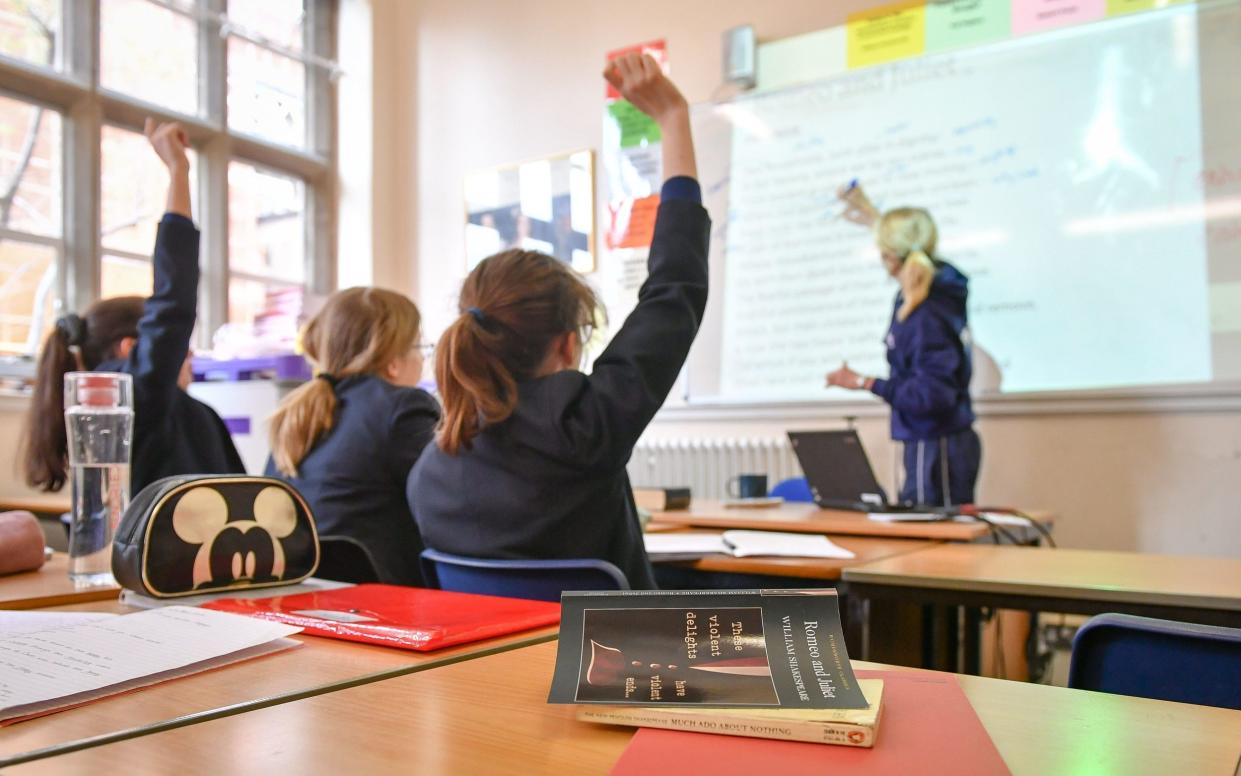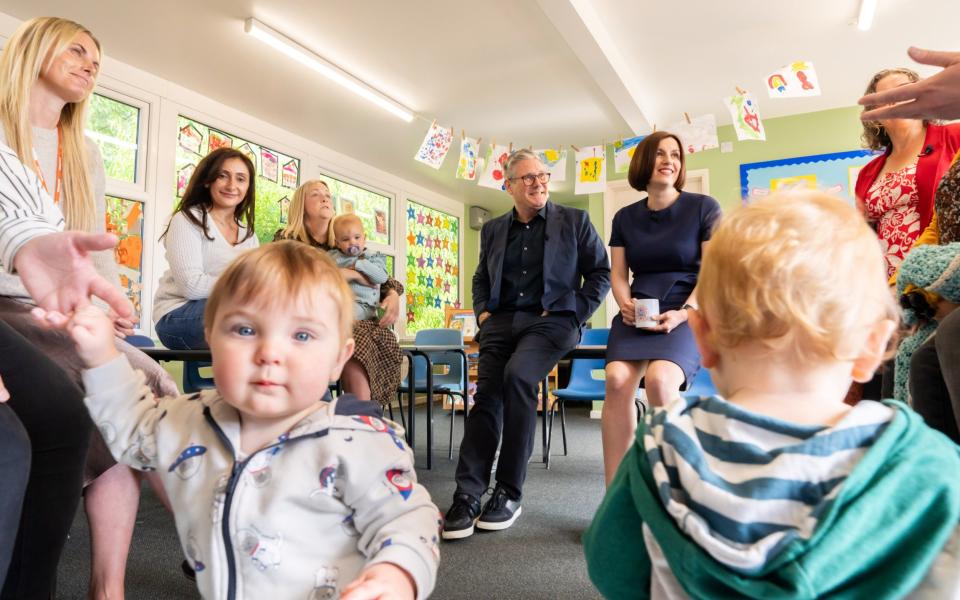Labour’s VAT raid could exacerbate already crowded state classrooms, warns teaching union

A leading teaching union has urged Labour to “carefully” consider the potential impact of its VAT plans for private schools, amid fears it could lead to bigger class sizes in the state sector.
Pepe Di’Iasio, the general secretary of the Association of School and College Leaders (ASCL), which represents more than 25,000 senior secondary school teachers, told The Telegraph that the policy could come into force as class sizes are already increasing across the country.
Mr Di’Iasio said that while “nobody can know” if Labour’s proposed tax raid would cause class sizes to swell, the party should do further calculations on the potential impact of the policy before enforcing it.
“[Class sizes] will depend on how many pupils are priced out of private schools and where they end up,” he said.
“We have made the point on a number of occasions that Labour needs to model this policy carefully if it becomes the next government to examine the implications in full.”
The union leader said it came amid the “wider issue that class sizes in many state schools are increasing because of the Government’s underfunding of the state school system alongside other cuts that they are having to make”.
“This is the big issue that really does need to be dealt with as a matter of urgency by any incoming government,” he added.
Emily Thornberry, the shadow attorney general, acknowledged on Sunday it could result in “larger classes” in the short-term.
Sir Keir Starmer later slapped down Ms Thornberry’s claims.
Speaking to journalists in Nuneaton, the West Midlands, on Monday, he insisted the shadow cabinet minister was “wrong” to state so.
Asked specifically about the potential effects on class sizes, the Labour leader said: “We’ve had the analysis by the IFS [Institute for Fiscal Studies] on this which says that there will be a negligible impact, so we’re very confident about that.”

A report by the IFS published last summer said Labour’s VAT proposals could result in 3 to 7 per cent of privately-educated pupils switching to state schools – up to 40,000 children.
The report did not include analysis of the potential impact on class sizes, and Labour sources told The Telegraph that Sir Keir was referring to the report’s calculations as a whole rather than the question of class sizes specifically.
Bridget Phillipson, the shadow education secretary, also distanced herself from Ms Thornberry’s remarks on Monday, claiming she “just wasn’t right”.
Asked if the party’s private schools policy could send state school class sizes up, Ms Phillipson told Times Radio: “No, I don’t accept that. That is not what the Institute for Fiscal Studies said on our policy.
“They anticipated little effect in terms of movement from the private sector into the state sector and this is about making sure that our state schools have got the teachers and the mental health support that they need.”
Mr Di’Iasio also told the i newspaper that squeezed state school budgets meant headteachers are already making “difficult decisions” and that increasing class sizes is one of few levers schools can pull to save money.
Asked whether his members feared increased class sizes could be one of the unintended consequences of Labour’s VAT policy, he said: “Yes, definitely.”
Unions have warned that class sizes across the state sector could continue to increase in the coming years, placing additional pressure on teachers.
Data published by the Department for Education (DfE) last week showed that average class sizes in English state schools have remained broadly unchanged over the past few years, with a slight increase in Key Stage 2, which covers Years 3 to 6 of primary school.
There are 27.9 pupils per class taught by a single teacher on average this academic year, up from 27.7 in 2022/23. Across primary and secondary, the average class size in England is currently 26.6 – down slightly from 26.7 last year.
There is a statutory limit of 30 pupils per class in England for reception, Year 1 and Year 2, but no cap for subsequent years. DfE statistics only apply to England, though Labour’s private school policy would apply to private schools across the whole of the UK.
Analysis of DfE figures by The Telegraph showed that some areas have larger average class sizes than others, suggesting the potential impact of any private school exodus could be felt more acutely in those regions.
Chelmsford constituency currently has the highest average class size, with 28.3 pupils per teacher this year, followed by Romford with 28.2 per cent and Basildon and Billericay with 28.1 per cent.
Some schools have class sizes well beyond that, according to DfE figures. Stephenson Studio School in Leicestershire has the highest average class size of all state-funded secondaries and primaries in England at 41, followed by St Michael’s Catholic College in Southwark at 38.2 and Queen Mary Avenue Infant School in Cleethorpes at 38.
The National Education Union, the UK’s largest teaching union, said earlier this year that worsening budget pressures mean shedding more staff will be “the only way out” for many schools in the coming months, leading to larger class sizes and more stressed staff leaving the sector.
Labour hopes its plans to start charging VAT on private schools “as soon as possible” if it wins the general election will raise £1.7 billion to spend on state education.
The party has pledged to spend it on recruiting 6,500 new state school teachers, rolling out a new national “oracy” programme and ensuring all state schools in England have access to mental health counselling.
Sir Keir unveiled further plans on Monday to create 3,300 new nurseries, saying they would also be funded by Labour’s VAT raid on private schools.

 Yahoo News
Yahoo News 
